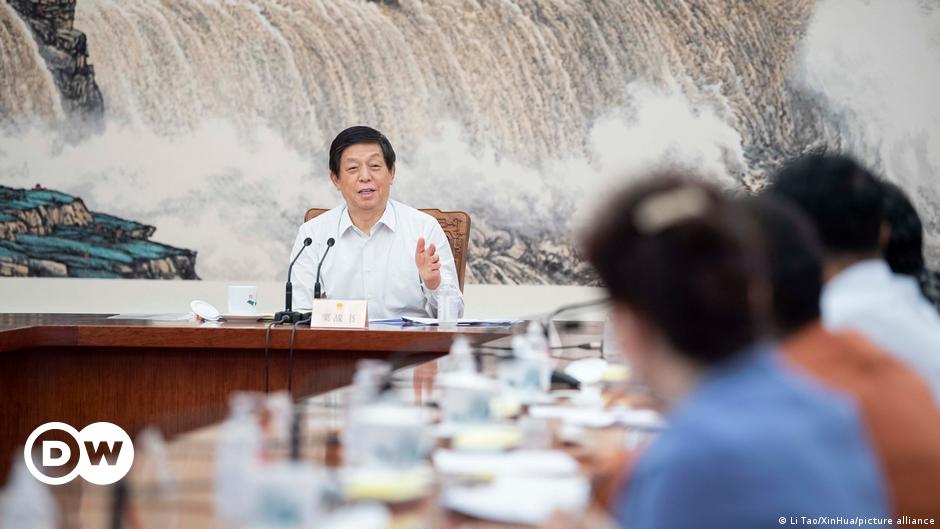China creates legal tool to counter foreign sanctions

The Standing Committee of the National People’s Congress (NPC) in Beijing passed a law Thursday that will create the legal framework for China to counter foreign sanctions on its businesses or citizens, according state broadcaster CCTV.
Beijing says the legislation will put in place a legal firewall to protect Chinese businesses and citizens from “one-sided and discriminatory” extraterritorial sanctions by western democracies, mainly the US, calling the move necessary in the face of blatant US interference in Chinese affairs.
Normally, laws are not voted upon until they have undergone three reviews, this was the second review of the draft legislation. A secret first review was conducted in April. No details about the legislation have been published thus far.
Beijing says it needs to defend itself against unfair sanctions
Beijing claims it has to defend its interests against the US, which is using “lies” about forced labor, internment camps, and re-education programs in the northwestern Xinjiang region to issue sanctions.
While the West, particularly the US and EU, have imposed sanctions on China over reported human rights abuses against ethnic Uyghurs in Xinjiang , Beijing says the penalties are driven by political ideology and the desire to stifle China.
The US has also imposed sanctions on Chinese entities such as high-tech firms Huawei and ZTE, labeling them “national security risks.”
As a result, Beijing says it is important to speedily create the legal means to safeguard the rights of Chinese institutions, enterprises and citizens.
What are examples of sanction protection laws?
In June 2018, Russia passed laws to protect its interests, security, sovereignty and territorial integrity, as well as the rights of its citizens.
The Kremlin also published a list of retaliatory countermeasures to sanctions, including the cessation of cooperation with unfriendly countries and institutions, and bans or restrictions on the trade of particular products and raw materials with those countries.
Last September, China’s Ministry of Commerce (MOFCOM) unveiled its own similar provisions in the “Unreliable Entity List” (UEL), which is viewed by some as a tool to counter the US crackdown on Chinese companies.
The list outlines the severe penalties foreign entities and individuals who undermine China’s national interests and Chinese companies may face.
Though Beijing claims the law and measures outlined in the UEL will not affect relations with other countries, the threat of such penalties could make US allies and Chinese business partners think twice before taking a stand against Beijing.
Watch video 05:17 Share The Day speaks with Briton Helena Kennedy, who was targeted for sanctions by China. Send Facebook reddit EMail Facebook Messenger Web Whatsapp Web Telegram linkedin Permalink https://p.dw.com/p/3rG3E The Day speaks with Briton Helena Kennedy, who was targeted for sanctions by China.
js/wmr (dpa, Reuters)
